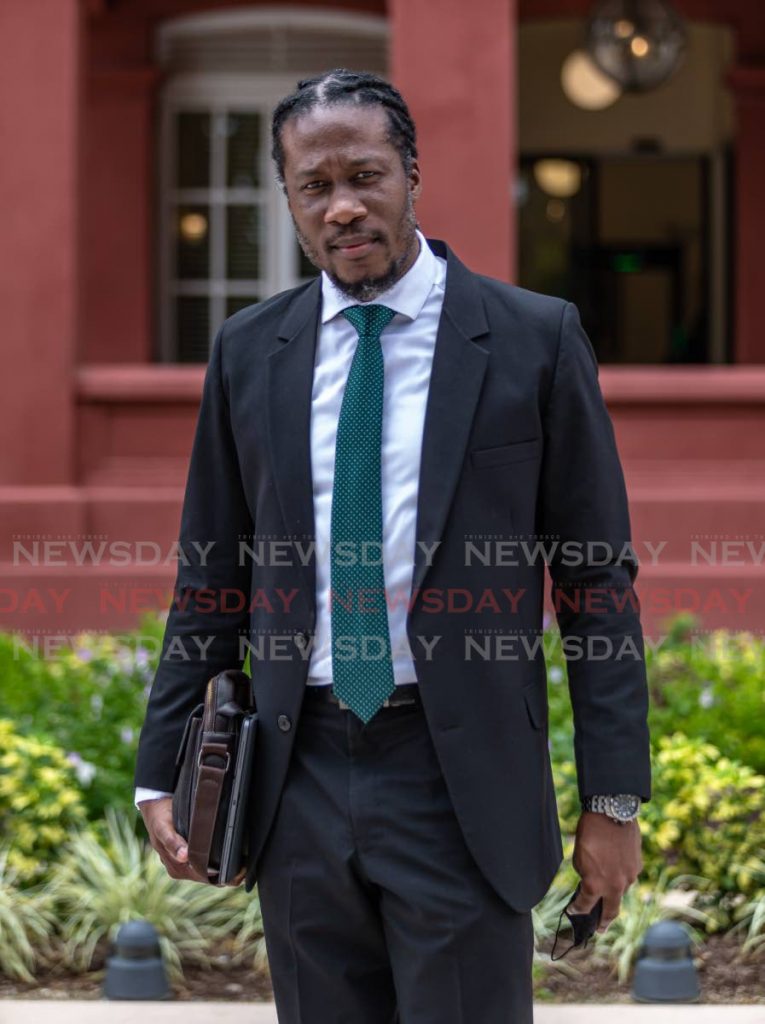Media house ordered to compensate MP for defamatory story
Source: Trinidad and Tobago Newsday
GOSSIP ought not to be the foundation upon which news is premised, a High Court judge has admonished as he ordered a media house and its journalist to compensate MP Adrian Leonce for a 2018 article which unjustifiably insinuated he was a wife-beater.
“Sadly and notwithstanding the billions spent on education, this society’s appetite for salacious stories is significant and it is fuelled, unabated, by the media.
“In an era where occurrences and developments reach a wide audience almost instantly via social media platforms, traditional media houses should understand that their continued relevance will depend on their ability to publish verified, reliable and accurate information,” Justice Frank Seepersad said in his ruling on Friday.

Leonce, MP for Laventille East/Morvant and Minister in the Ministry of Housing, and his wife Karen-Lee Bethelmy-Leonce, a teacher, in their defamation claim against Guardian Media Ltd (GML) and its reporter Renuka Singh, complained of the contents of an article published on October 8, 2018, in the Trinidad Guardian newspaper.
The article related to injuries Bethelmy-Leonce, a secondary school teacher, suffered on August 30, 2018, in an accident at her home when she slipped and fell.
Seepersad said while the court “shall with unwavering resolve, uphold and protect press freedom,” it will not sanction irresponsible journalism or outrageous press conduct.
He ordered Singh and GML to pay Leonce $325,000 in damages for the defamatory article, but dismissed Bethelmy-Leone’s claim for breach of confidence and misuse of private medical information.
In his ruling, Seepersad said regrettably, TT’s society was divisive and the “ill-advised, unjustified and reckless inclusion” of statements by Leonce about rumours of domestic violence “played into a narrative of ‘another dysfunctional black family’.
“This portrayal was irresponsible and the court feels compelled to register its dismay and disapproval that such an exemplary family was brought into ridicule.”
He said it was accepted that in a modern democracy, journalists were entrusted with the professional obligation to impart information on matters of public interest as they can unearth and publicise information which can lead public officials to be held to account for their actions and decisions.
However, he said, not everything in which the public may have an interest can satisfy the “public-interest” aspect of the defence available to the media.
“The public may be interested in issues, situations or occurrences which may be entertaining or salacious but which are devoid of any element of national significance. In this regard, the media have for too long genuflected to the generation of finances by publishing articles that contain puerile, sensational, sensual or personal information which has no real public interest aspect or element.
“It is the duty of media practitioners, acting responsibly and without biases, to judge where the line should be drawn. Generally, matters should fall under the rubric of public interest where they relate to the public functions and /or the conduct or contributions of those who form an integral part of the social framework and whose activities or actions benefit or impact upon members of the society.”
The judge said after the reporter’s exchanges with Leonce, she should have realised there was no car accident and should have viewed her source’s information with suspicion and caution.
He said as a responsible journalist, she also should have pursued further verification of the incident by trying to speak with Bethelmy-Leonce, since she had no documentary evidence – hospital records or a police report – to suggest the MP’s wife may have been the victim of domestic violence.
Seepersad said there was the possibility that the article conveyed to readers that Bethelmy-Leonce was a victim of violence at the hands of her husband.
“The combination of words clearly conveyed a meaning to the minds of the readers that there was ‘more in the mortar than the pestle’ and that domestic abuse seemed to be behind her injuries.
“If the first claimant had committed an act of domestic violence, it is logical to expect that right-thinking members of a society which values its women, would not say that ‘the second claimant didn’t choose her man wisely’ but they would condemn the acts of violence and demand that the perpetrator is held to account.
“It is therefore obvious that a story which suggested that a government minister was possibly guilty of domestic violence was a ‘news item’ which would sell like ‘hot hops’ and generate increased readership and revenue,” he said as he found the media report failed to adhere to the standards of responsible journalism.
“These insinuations were inserted without justifiable foundation and possibly altered the public’s perception of an upstanding professional couple who seemed to be admirably balancing service to country and devotion to family.”
While ruling against the media house, the judge warned that politicians were not untouchable, though they “seemingly believe” they were.
“Constructive or justified criticism, as well as suggestions of impropriety, is often addressed by the politicising of the commentary and the authors.
“This position is seemingly adopted with the objective of distracting and deflecting. This manner of response is becoming the modus operandi of political operatives who pose as social commentators and their reach has even extended to decisions of the court.
“This practice is unacceptable, it undermines the administration of justice, jeopardises the rule of law and has no place in a democratic society.”
He also said he could not align himself with recent court awards for damages in defamation cases that involved politicians.
“This is a society which traditionally displays a short memory and negative reputations rarely impede the resolve and electability of politicians.
“These high awards in defamation suits offer greater compensation to politicians than that which is awarded to citizens who suffer significant personal injuries and they are simply not justified.”
Seepersad also made it clear that no holder of public officer had an automatic entitlement to inordinately high awards of damages, as their purpose was compensatory, not punitive.
At the trial last month, two of Leonce’s ministerial colleagues testified on his behalf, but the judge did not consider their evidence helpful in the case.
Leonce and his wife were represented by attorneys Colvin Blaize, Farai Hove Masaisai and Jennifer Tull. Singh and GML were represented by attorneys Marc Campbell and Andre Rudder.


